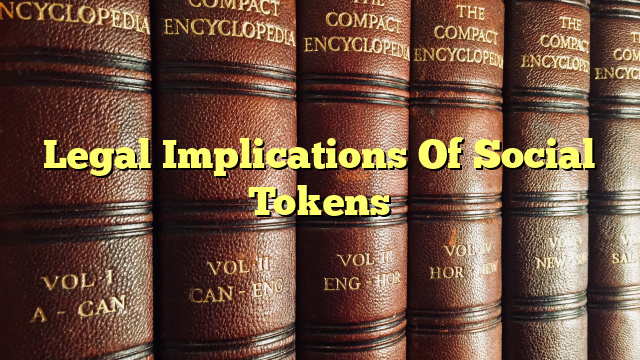Table of Contents
Use Cases for Social Tokens
Social tokens have gained popularity as a means of community engagement and monetization. Some common use cases for social tokens include:
- Creating a sense of exclusivity and belonging within a community
- Rewarding community members for their contributions and engagement
- Providing access to exclusive content, events, or experiences
- Facilitating peer-to-peer transactions within a community
- Supporting creators and artists by allowing fans to directly invest in their work
Legal Implications of Non-Fungible Tokens
Non-fungible tokens (NFTs) have unique legal considerations due to their nature as digital assets. Some key legal implications of NFTs include:
- Intellectual property rights: NFTs can represent ownership of digital assets such as artwork, music, or collectibles. Ensuring proper licensing and rights management is crucial.
- Taxation: NFT transactions may have tax implications, such as capital gains tax. Consultation with a tax professional is recommended.
- Consumer protection: Buyers of NFTs should be aware of the risks associated with fraudulent or misrepresented tokens. Researching the authenticity and reputation of sellers is important.
- Regulatory compliance: Depending on the jurisdiction, NFT issuers may need to comply with securities regulations or anti-money laundering laws.
Risks of Tokens
While social tokens offer various benefits, they also come with certain risks that should be considered:
- Volatility: The value of social tokens can fluctuate significantly, which may result in financial losses for holders.
- Regulatory uncertainty: The legal and regulatory landscape surrounding social tokens is still evolving, and compliance requirements may change over time.
- Market manipulation: Social tokens can be susceptible to market manipulation, including pump-and-dump schemes or insider trading.
- Security vulnerabilities: Digital wallets and platforms used for social tokens may be vulnerable to hacking or other security breaches.
License Requirement for Issuing Social Tokens
Whether a license is required to issue social tokens depends on various factors, including the jurisdiction and the specific characteristics of the tokens. In some cases, social tokens may be considered securities and subject to securities regulations. It is advisable to consult with legal professionals familiar with the applicable laws and regulations in your jurisdiction.

